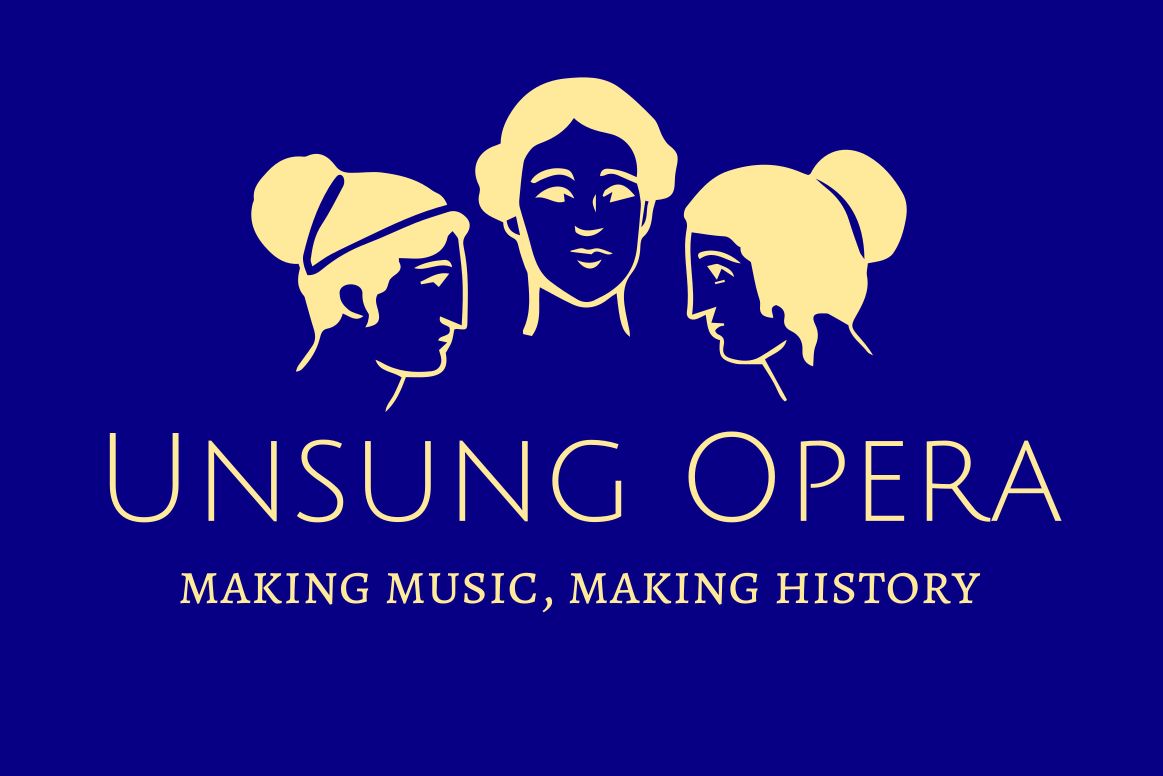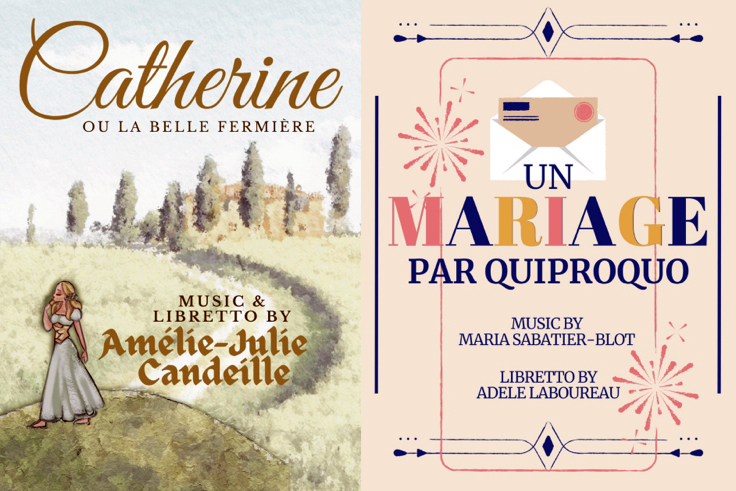Sadie O'Conor: My name is Sadie O'Conor and I am the founder and executive director and one of the performers of Unsung Opera. We are an interdisciplinary collaboration of performers and scholars dedicated to performing and recording historical stage works written by women that have never been recorded before.
Aaron Cain: So where did you first get the idea to create this organization?
Sadie O'Conor: Well at the beginning of the year I was in a music history class. It was a survey of operatic literature with Professor Jill Rogers, who is really great about helping us find a mix of well-known parts of the canon, and other things that are not in the canon, and the reasons why they might not be in the cannon. So we looked at a few stage works written by women around the French Revolution, and one of them, Catherine, was one of the shows that we're producing now. And two of my classmates had to sightread the music in class on that day because that was the only way we were going to be able to know what it sounded like. Because there's no album, there's no video, nobody stages it, there was no English translation of the libretto. So that, in the beginning, was a problem that I saw we could fix. You know, this is my first semester as a grad student at a conservatory, and Jacobs is absolutely amazing. We have so many wonderful resources. But I find it isolating to just work on solo repertoire the entire time. I come from a theater background. I come from a liberal arts background. And so I like working on a show, or I like working on something larger than just my solo repertoire. And, you know, you throw a rock and you hit a musician [laughs]. So, of anywhere that could have done this—and the scholars and performers that we have here—I knew we knew how to get a team together if we really wanted to. And then there was also this problem of the gendered and traditionalist bias that is inherent in the opera canon. And it sometimes preserves wonderful things for us; there are so many operas that are in the canon that I love. But we're missing out on some other stuff because they were kept out. Because people said, like, “women shouldn't be in the public sphere, people of color shouldn't be in the public sphere, how dare you write something like this that challenges the status quo?” And, so, because of that, they were suppressed after their original run, and they have not been premiered since.
Aaron Cain: Well, using the example of one of the two works that are going to be on this performance that's coming up, the one that you mentioned already, Catherine, it was huge in its day.
Sadie O'Conor: Yeah.
Aaron Cain: It was a big part of the French Revolution. It was performed for the Last King of France.
Sadie O'Conor: Yes. Yeah.
Aaron Cain: And, so, this is something that since its day has all but disappeared.
Sadie O'Conor: Yes. And I think part of that is because it became so tied to the time and place that it premiered in, and especially the creator, Amélie-Julie Candeille. She was not able to keep it going once it had become so closely tied to her as a person. Because she was the composer, she was the writer of the script, she also played the harp and sang and performed the role of Catherine in the original. At the time it was about her making this statement about, yes, this is a fictional person, but all of these really feminist themes, how women should be given the same rights and liberties as men, the same stuff that the revolution had just fought for. And so she was tying this idea of this fictional character with these ideas to her real-life public persona, so people could see that it was a real life parallel that could happen.
Aaron Cain: So that's her. What can you tell me about the other composer who's on there? I could not find much about Maria Sabatier-Blot.
Sadie O'Conor: Yeah, most of what I know has come from our fabulous musicologist and researcher. Maggie Eronimous has done most of the research about Mariage par Quiproquo is the full title. When she first started trying to do research to assemble our program notes and our dramaturgical stuff, she could not find anything. Because there were one, maybe two reviews of this original—‘cause it premiered in a salon chamber context, and so it was a very limited audience of the premiere. As far as we can tell, it was only performed once. So there really was no public dialogue about it, probably because she was a woman writing for a chamber music context in the middle of the 19th century. It's only written for four characters and a pianist. So our four performers—plus Devon, our pianist who is also our musical director—at the moment they are the only five people in the world who know this score, other than our advisors, which is something we never thought we would be doing at the beginning of 2023. But it's really been such a wonderful opportunity. This is the first time that this will be performed, but it is my hope that this will not be the last production that happens. And once these are out there, once we have the videos and the albums and everything out there as well, there will be more of a chance for people to learn about them and perform them. And then I think it will become much bigger than any of us. That's what I'm most excited about is for it to go beyond us.
Aaron Cain: Sadie O'Conor, thank you so much for speaking with me today.
Sadie O'Conor: Thank you for having me.
Aaron Cain: Unsung Opera presents the modern premiere of two operas by the virtually unknown composers Amélie-Julie Candeille and Maria Sabatier-Blot, April 30th and May 1st at 7:00 PM at the FAR Center in Bloomington. More information at unsungopera.org. For WFIU Arts, I'm Aaron Cain.








